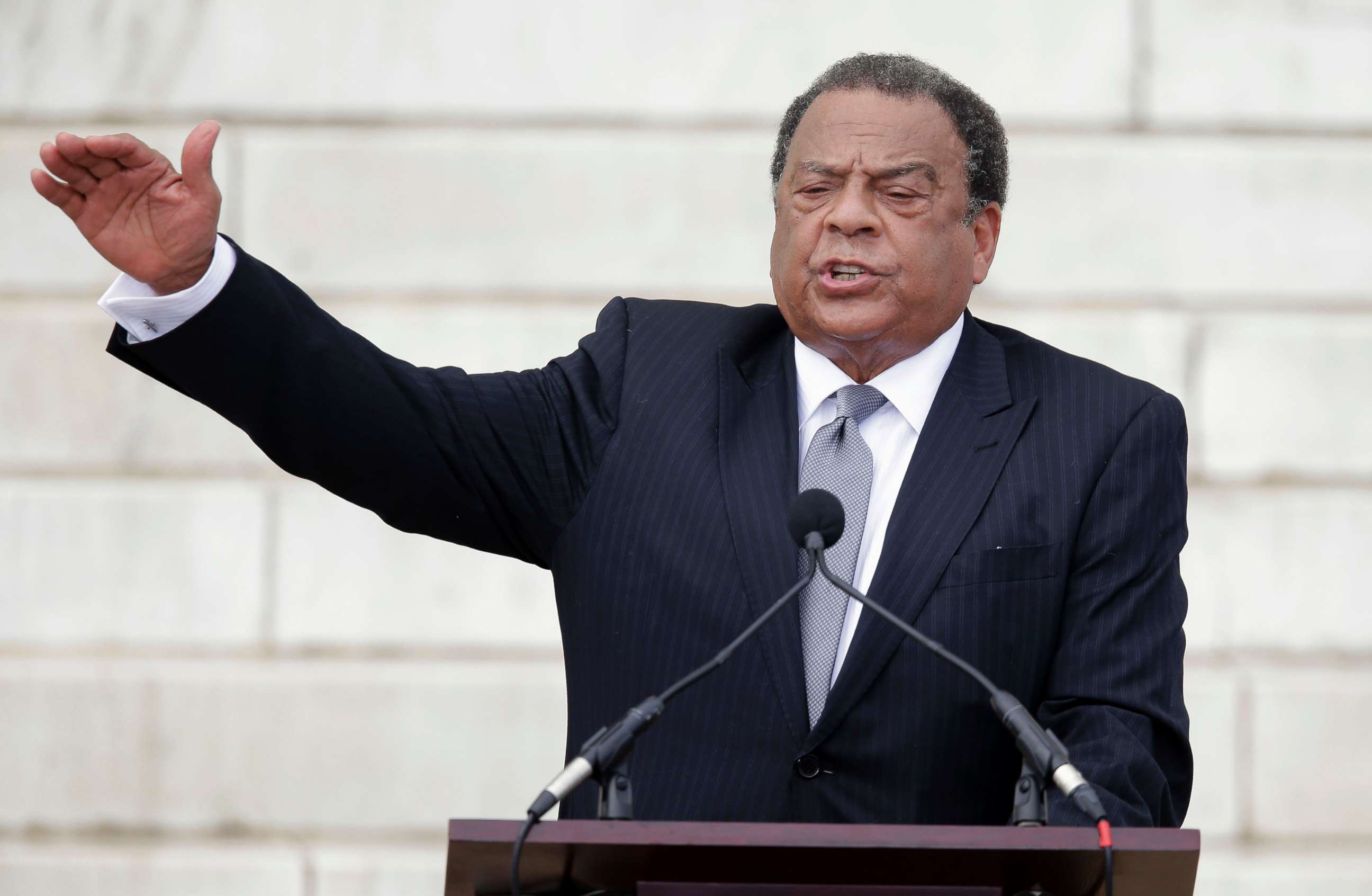Martin Luther King Jr. 'never lost faith in the American dream': Andrew Young
King was assassinated 50 years ago this week.
Martin Luther King Jr. "never lost faith in the American dream, said Andrew Young, a former U.S. ambassador to the United Nations who was a King ally in the civil rights movement.
Asked by ABC News Chief Anchor George Stephanopoulos on "This Week" Sunday what King's message would be this Easter if he were still alive, Young said King's dream of civil rights and social and racial justice was "deeply embedded" in the American dream.
“He saw in the Constitution a fulfillment of a promise, and he spent his life trying to redeem that promise,” Young said of King, who was assassinated 50 years ago this week.

Young said King strove to confront the triple evils of “race, war and poverty.”
Although progress has been made, work remains to be done, the former U.N. ambassador and Atlanta mayor said, and he sees the recent youth-led movement against gun violence as part of the solution.
"Dr. King used to say that unearned suffering is redemptive," Young said. The teens from Parkland, Florida, leading the current movement are innocents "splattered by the blood of classmates," he said.
"I think these young people are going to be involved in the redemption of America from poverty, from war, from violence," Young said. "I think that’s -- that’s the key to the future.
Young also addressed the recent fatal police shooting of an unarmed black man in Sacramento, California, which has sparked days of protests.
He said poverty is a factor in police violence.
“Many of the things that we think of as racial now, a lot of the police violence, a lot of the -- the conflict between the rich and the poor, that comes out as -- as much more related to poverty than race,” Young said.




